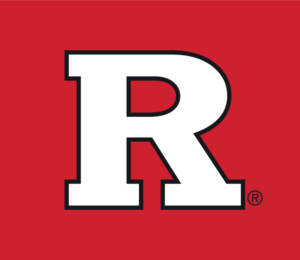Jersey City Uber Accident Lawyers
We are a team of highly skilled personal injury attorneys. If you have a bodily injury legal issue in or around Jersey City, New Jersey, we can help. Call us today for a free consultation.
Jersey City Uber Accident Lawyers
Like all states, New Jersey regulates rideshare companies and their drivers. The goal of these regulations is to protect rideshare passengers and road users from unqualified drivers with a history of criminal convictions or traffic violations.
New Jersey’s law also sets insurance requirements to compensate victims of accidents. Unlike regular drivers, no-fault insurance for Uber drivers does not cover passengers. But the state makes up for this by requiring rideshare companies and their drivers to carry large liability insurance policies.
After a rideshare accident, Jersey City Uber accident lawyers from Garces, Grabler & LeBrocq understand the stress and confusion you may experience. We provide decades of experience in standing up to huge insurers to get fair compensation based on your injuries.
New Jersey Uber Accident Insurance Law
New Jersey rideshare insurance differs completely from the insurance you must buy for your personal vehicle. The insurance you bought and the policy carried by Uber and its driver will determine the insurance benefits you can pursue after an accident.
Your Insurance Coverage
To register your non-commercial, non-rideshare vehicle, you must have three types of insurance coverage:
- Personal injury protection (PIP) coverage
- Property damage liability (PDL) coverage
- Uninsured motorist (UM) coverage
New Jersey does not require you to buy bodily injury liability (BIL) coverage. The state runs a choice, no-fault system. “No-fault” refers to your PIP coverage that pays you for economic losses due to your injuries, regardless of whether you or the other driver caused the crash.
“Choice” means you must decide whether to retain your right to file a lawsuit against the at-fault driver. If you choose the unlimited right to sue, you will pay more for insurance, but you can sue the at-fault driver for economic and non-economic damages regardless of the injuries you suffer.
If you choose a limited right to sue, you will pay less. However, you can only sue the at-fault driver for non-economic damages if you suffer a permanent injury.
Thus, under New Jersey insurance law, you can seek PIP benefits under your auto policy after an Uber crash, no matter who caused the accident. Whether you can seek more from Uber and its drivers will depend on the following:
- Were you an Uber passenger or a road user?
- If you were a road user, do you have an auto insurance policy?
- Did you elect an unlimited or limited right to sue?
- Did you suffer a permanent injury?
The answers to these questions will tell you what losses you can pursue from the policies held by Uber and the driver who hit you.
The Uber Driver’s Liability Policy
Uber drivers must carry policies with three types of coverage. The coverage available to accident victims depends on what the driver was doing at the time of the crash:
- Having personal time
- Being logged into Uber’s app without any passengers
- Carrying Uber passengers
If this weren’t complex enough, New Jersey rideshare insurance law adds one additional wrinkle. The Uber driver must carry PIP coverage, but that insurance only covers the driver’s injuries. Passengers aren’t covered by the Uber driver’s PIP insurance the way they would be covered if they were riding in a friend’s car.
As a result, any claim against the Uber driver must fall under the liability policies that Uber and the driver carry. Insurers only pay liability claims when the driver was negligent in causing the crash. Thus, if you were an Uber passenger and your driver was hit by a drunk driver, you might not have a claim against Uber or the Uber driver. Instead, you must assert a negligence claim against the drunk driver.
To prove a negligence claim, your Jersey City Uber accident lawyer must prove four elements:
- Duty of care
- Breach of duty
- Damages
- Causation
All drivers have a duty to passengers, pedestrians, bicyclists, and fellow motorists to drive with reasonable care by obeying traffic laws and customs. They breach this duty by violating either of these stipulations. If you suffer an injury caused by the driver’s negligent act, you will have losses in both your finances and quality of life.
This is where your insurance status comes into play. The damages you recover will depend on whether you are a passenger or a road user. If you are a road user, they also depend on whether you elected an unlimited or limited right to sue.
Uber Insurance Requirements
The insurance coverage for an Uber driver depends on the three possible statuses:
Private Time
Drivers must have the same insurance as every other New Jersey vehicle owner when they are driving for personal purposes rather than transporting passengers through Uber’s rideshare service. Specifically, they must carry PIP, PDL, and UM coverage.
To qualify as “personal time,” the driver must either log out of the app or indicate they are not available to accept passengers. If the driver is both logged into the app and available to accept Uber passengers, they are driving for Uber’s purposes rather than their personal reasons.
Logged Into the Uber App Without Passengers
When a driver is logged into the Uber app to find or pick up passengers, they must carry BIL coverage of $50,000 per person up to $100,000 per accident. This coverage pays any motorists, pedestrians, or cyclists injured by the driver’s negligence.
The driver must also carry $25,000 in PDL. This coverage pays for property damaged by the driver’s negligence.
Carrying Uber Passengers
Uber and its drivers must provide $1.5 million in combined PDL and BIL coverage while carrying passengers. The liability insurer will pay benefits to anyone suffering an injury or property loss up to the $1.5 million policy limit after they prove the driver acted negligently in causing the collision.
The driver must also have a special kind of PIP coverage that only pays benefits to the Uber driver after a crash. Specifically, it does not pay passengers, pedestrians, or cyclists hit by Uber drivers. Finally, Uber and its drivers must have at least $1.5 million in UM coverage.
No Fee Unless
GGL Wins
Leading Causes of Uber Accidents
Uber drivers cause accidents in many of the same ways that other drivers do. What may be different about Uber drivers is the difficulties that come with carrying unknown passengers to unfamiliar neighborhoods. Some of the leading causes of Uber crashes include the following:
DISTRACTED DRIVING
Uber drivers can become distracted while driving to and picking up passengers. For instance, they might focus on watching the navigation system rather than the roads.
During even a brief two-second distraction at 35 miles per hour, a vehicle travels over 100 feet. If the driver’s eyes, mind, or hands are preoccupied, they can’t spot and avoid any vehicles, bicycles, or pedestrians in their way.
Some distractions Uber drivers may encounter include:
- Watching navigation maps
- Talking to passengers
- Talking on the phone
- Adjusting the sound system
- Reading app notifications
Distracted drivers can commit many traffic violations. They might run through a stop sign or red light. Alternatively, they could fail to stop at a crosswalk occupied by a pedestrian or cyclist. They may even slam into the rear of a vehicle that has slowed down or stopped. In all these situations, the person hit and the Uber passengers may suffer serious injuries.
UNFAMILIARITY WITH THE AREA
Unfamiliarity with an area might lead to careless driving. The driver may make sudden turns or lane changes when they realize they are in the wrong lane. They may also miss speed limit signs and fail to adjust their speed accordingly. Drivers can even get lost and go the wrong direction down a one-way street.
Mapping apps and directions from the passenger can make the situation worse. Rather than concentrating on driving, the driver may focus on trying to find the address. They can hit vehicles or other road users while distracted.
SPEEDING
Uber drivers might be tempted to speed since their compensation depends on the number of rides they provide. Unfortunately, speeding is a contributing factor in many crashes.
Excessive speed increases braking distance. When a driver is dealing with poor visibility or slick roads, they might not have enough distance to stop or swerve when encountering traffic or a road hazard.
Speeding also makes a vehicle more difficult to control. Even in good weather, speeding amplifies small movements in the steering wheel. If the tires lose traction due to bump roads or slick surfaces, the driver will lose control of the vehicle.
The energy released by a collision increases as speed increases. What might have been a minor car crash at 25 miles per hour can cause fatal injuries at 45 miles per hour.
All three of these factors would suggest to a reasonable Uber driver that they should minimize the amount of speeding while driving passengers. If they speed anyway, passengers and road users can assert that the Uber driver was negligent.
TAILGATING
Uber drivers may tailgate for the same reason they speed: impatience. Being unwilling to wait may drive them to follow another vehicle too closely, leaving no room to maneuver or even react when the vehicle stops or slows suddenly.
Tailgating leads to rear-end crashes, which can cause whiplash and other neck injuries to passengers of any of the vehicles involved in the collision. A reasonable Uber driver should follow at a safe distance and may be negligent if they follow too closely.
FAILING TO YIELD AT INTERSECTIONS OR CROSSWALKS
Many intersection crashes happen when a driver fails to yield. When this happens, multiple vehicles can enter the intersection simultaneously, resulting in a collision. Failures to yield happen at intersections when drivers:
- Disobey red lights or stop signs
- Turn in front of an approaching vehicle
- Fail to stop at a crosswalk while a pedestrian or cyclist is crossing
- Go through an intersection out of turn
Uber drivers may fail to yield for many reasons, including impatience, distraction, or carelessness. When they fail to yield, they can endanger their passengers as well as motorists, pedestrians, and cyclists at the intersection.
UNSAFE LANE CHANGES
Careless Uber drivers may rely on their rearview and side mirrors when changing lanes instead of checking their blindspots. In such cases, the driver can move into a lane occupied by a vehicle or bicycle. Maneuvering without looking is extremely dangerous. Thus, you may have a negligence claim against an Uber driver who moved into your lane.
The resulting sideswipe collision can injure the occupants of both vehicles. If the Uber driver sideswipes a bicycle or motorcycle, the rider could get ejected or run off the road. This type of collision could result in catastrophic or fatal injuries.
INTOXICATED DRIVING
New Jersey law attempts to prevent drivers with a history of DUI arrests from becoming drivers. But Uber’s screening process might not detect a driver who has never been caught for DUI. Equally importantly, a driver’s drug or alcohol use can change after they get approved to drive for Uber.
Compounding this risk is the fact that Uber does not conduct any drug or alcohol testing on its drivers. Operators of buses and semi-trucks must pass drug and alcohol tests regularly to continue driving. But Uber drivers never even get tested.
As a result, an Uber driver might drive while impaired by drugs or alcohol. When they do, they will have slower reflexes and lower alertness. As a result, the driver might have trouble controlling the speed and direction of their vehicle, and their judgment might be clouded. All of this can result in crashes that injure or kill passengers and road users.
MECHANICAL FAILURES
Uber does not need to inspect vehicles before drivers use them. However, the state does require Uber to verify that the vehicle passed a state inspection and has a valid inspection certificate.
When drivers know or should know that their vehicle has a safety issue, continuing to carry passengers may constitute negligence. For example, suppose that a driver’s brake pedal feels soft, affecting its braking power. An insurer or jury might consider the Uber driver negligent if they failed to have the brakes checked before picking up passengers.
Compensation in New Jersey Uber Accident Cases
The compensation you seek after any accident may include economic and non-economic damages. Economic damages encompass all your financial losses due to your injuries. These damages can cover:
- Past and future costs of medical treatment and therapy
- Wages you lost due to missing work
- Future wages you can’t earn due to long-term or permanent disabilities
- Reasonable and necessary out-of-pocket expenses
Non-economic damages try to put a monetary value on all the ways your injuries diminished your quality of life. For example, pain can influence your mood, rob you of sleep, and affect your ability to participate in activities you enjoy. These aspects of your life do not come with a price tag, but they do represent something you lost.
Examples of losses that fall within your non-economic damages include:
- Physical pain
- Emotional distress and mental suffering
- Disability
- Scarring and disfigurement
- Dismemberment
The complex rules of New Jersey Uber accident insurance law determine the damages you can seek. Common scenarios involving Uber crashes include:
- Passengers, pedestrians, and cyclists seeking both types of damages
- Motorists with non-permanent injuries and limited rights seeking unreimbursed economic damages
- Motorists with permanent injuries and unlimited rights seeking both damages
- Motorists with unlimited rights seeking both damages
Your attorney proves your economic damages using financial records like receipts and credit card statements. You prove non-economic damages with medical records by showing the severity of your injuries and giving testimony about how they affected you.
In rare situations, you may also seek punitive damages, but the standard for getting these types of damages is high. You must persuade a judge that Uber or its driver must be punished and deterred for egregious conduct.
Why Hire GGL?
Since 1991, Garces, Grabler & LeBrocq has represented injured clients in Jersey City and throughout the state of New Jersey against the people and businesses who injured them. Our Jersey City Uber accident lawyers prepare every case as if it will go to trial. We’ll never be outworked by insurers or insurance defense lawyers.
We aggressively advocate for your right to fair injury compensation. At the same time, we treat every client like family by providing accountable, honorable, and respectable legal representation on behalf of our clients. Contact us online or at 1-855-GGL-WINS today for a free consultation to discuss your Uber accident and how we can help you pursue fair injury compensation.
No Fee Unless
GGL Wins
We've got you covered.
We are available 24/7/365

OFFICIAL PARTNER OF RUTGERS ATHLETICS
Jersey City Uber Accident Lawyers
Address: 3000 John F. Kennedy Blvd. Suite 311 Jersey City, NJ 07306
Phone: (201) 695-1000
Open 24/7 365
Office:
8:30-6:00 Monday
8:30-6:00 Tuesday
8:30-6:00 Wednesday
8:30-6:00 Thursday
8:30-6:00 Friday
Recent GGL Wins
Medical Malpractice
A 30-year-old pregnant woman went into labor. The doctor failed to take proper steps in the baby’s delivery, making the mother wait in the hallway for ten hours while the baby’s heart rate began to drop. The baby was delivered via C-Section; he was blue from lack of oxygen resulting in Cerebral Palsy.
$14 Million
Verdict
Construction Accident
Mediation award resulting from an industrial explosion causing disfiguring burns and severe orthopedic injuries.
$7,8 Million
Verdict
Auto Accident
31-year-old man who was cut off by another car causing his car to flip over. He sustained head injuries, facial injuries, and half of his pinky finger was amputated.
$3 Million
Verdict
No Fee Unless
GGL Wins
Request A Free Consultation
We've got
You covered
We are available 24/7/365

